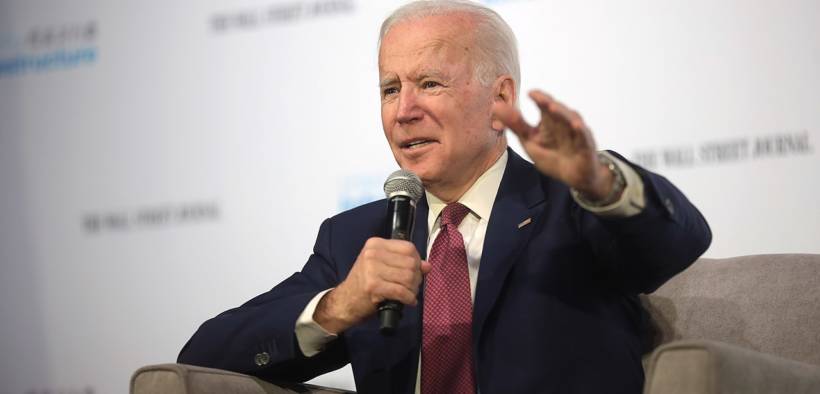Biden Pushes Back Against Trump, Yet Stays Hawkish on Foreign Policy

Biden and policy advisers around him have re-tooled the basic Trump and American foreign policy with slightly friendlier language
As America reaches 100,000 coronavirus deaths, President Trump is taking a golf trip and most states have opened up despite new coronavirus cases remaining high. It seems like a slam dunk for the challenger to beat the incumbent in November 2020, a tanking economy, record unemployment, and deaths piling up due to the President’s casual reaction to a public health crisis.
Yet, the presumptive Democratic challenger’s campaign has been mired in controversy in recent weeks. As soon as mainstream media began interrogating the personal life of a former Biden Senate staffer who accused him of sexual assault, Biden made an astonishingly racist remark in a now-infamous interview with Charlemagne Tha God.
Due to the lack of enthusiasm for Biden as a candidate, the campaign has been pushing the notion that Trump needs to be replaced at all costs. The Biden campaign has mainly drawn distinctions between Trump and Biden on coronavirus and Trump’s nasty rhetoric.
But what about foreign policy?
Some Biden campaign ads early during the coronavirus pandemic pointed to some hawkish characteristics, particularly on China. “I would be on the phone with China and making it clear: we are going to need to be in your country,” Biden said during a February debate.
Biden’s hawkish words don’t end there, and a quick study of his campaign’s website reveals more about how Biden’s foreign policy would operate.
Israel and Palestine
In a now revised sentence on Biden’s official website, the campaign called out the BDS movement for “letting Palestinians off the hook for their choices.”
The campaign edited the sentences after pushback from activists and Palestinians, but it still holds much of the same content. On the page titled “Joe Biden and the Jewish Community”, Biden’s official website says his administration would “firmly reject the BDS movement — which singles out Israel and too often veers into anti-Semitism — and fight other efforts to delegitimize Israel on the global stage.”
Fervent support for Israel is a mainstay in both the Democratic and Republican Party, but the specific appeal to those who oppose BDS is viewed by many as a slap in the face to the left-wing of the Democratic Party.
Biden also said on a call to donors, “Criticism of Israel’s policy is not anti-Semitism. But too often that criticism from the left morphs into anti-Semitism.”
President Trump has released deals and agreements calling for peace in the region which have heavily favored Israel. Foreign Policy compared Trump’s agreement to South African apartheid, but there is little evidence that Trump who radically alter American policy when it comes to Israel.
Iran
Perhaps the one region of the world where the Trump administration has had the most impact on is Iran. Trump unilaterally pulled out of the Iran nuclear deal; an agreement struck by the Obama administration that would limit Iran’s access to nuclear weapons.
Biden wants to reenter the agreement, which is held together by a thread. But on his website, his campaign says he also wants to “to strengthen and extend the Iran deal, and push back against Iran’s other destabilizing actions.”
It’s hard to imagine Iran agreeing to a ‘strengthened’ deal after the Americans tore up the deal under Trump.
Biden’s campaign website also touts the Obama Administration’s “crippling multilateral sanctions” against Iran. But these sanctions and more by the Trump administration have hampered Iran’s response to the coronavirus outbreak and led to increased deaths in one of the earliest and hardest-hit countries.
Rather than calling for a different tact to the most important foreign policy issues facing the world, Biden and policy advisers around him have re-tooled the basic Trump and American foreign policy with slightly friendlier language.



















